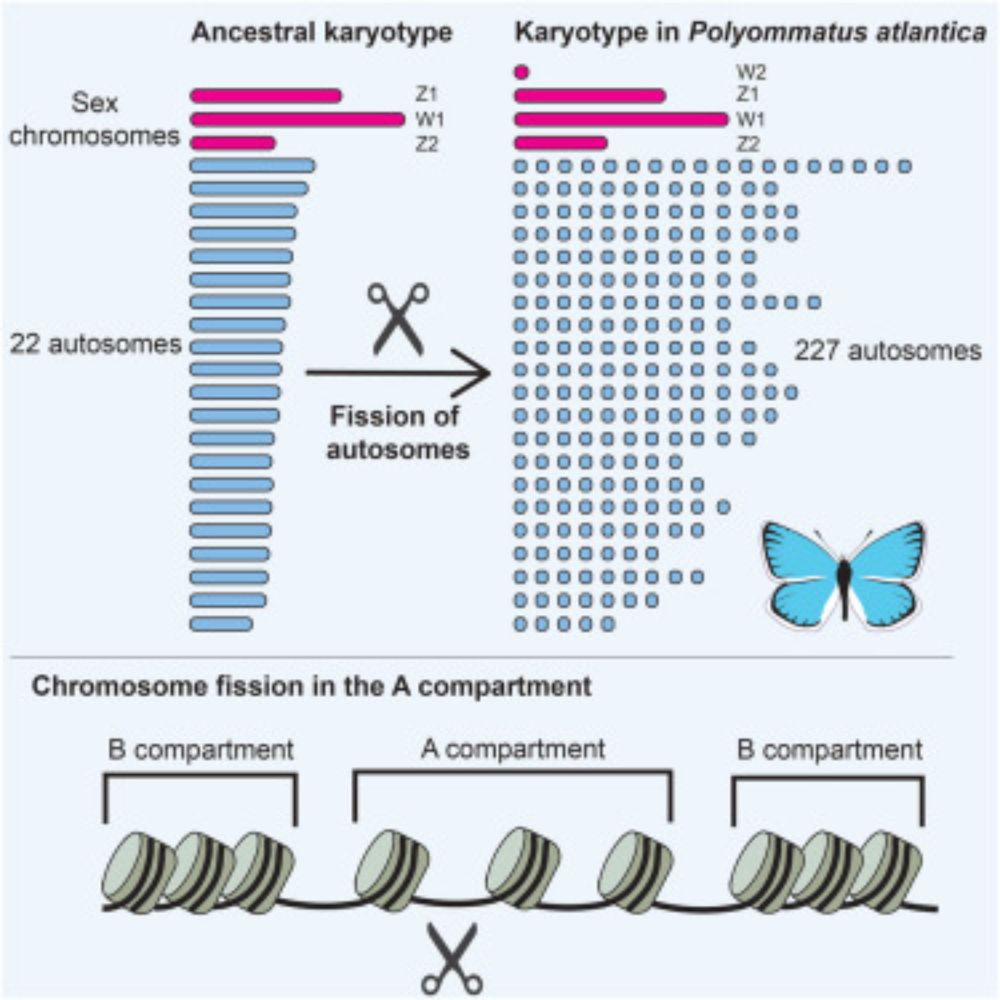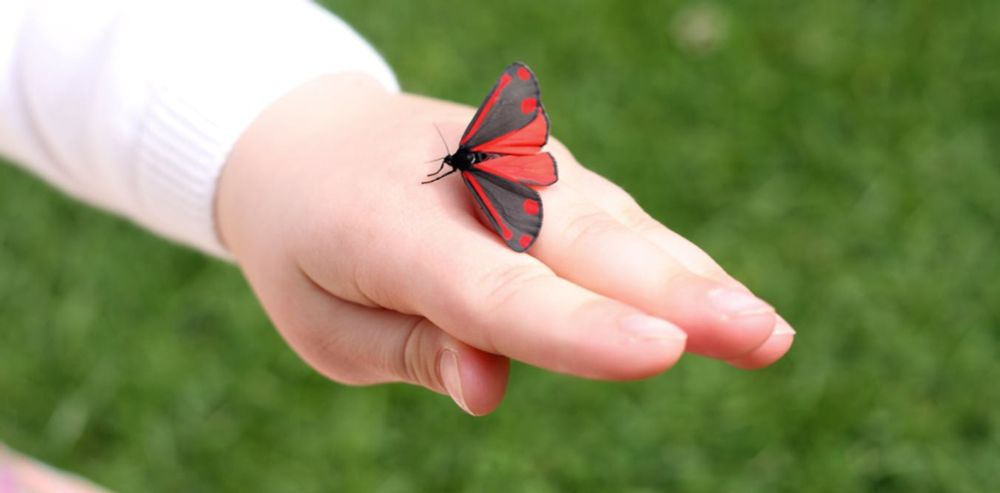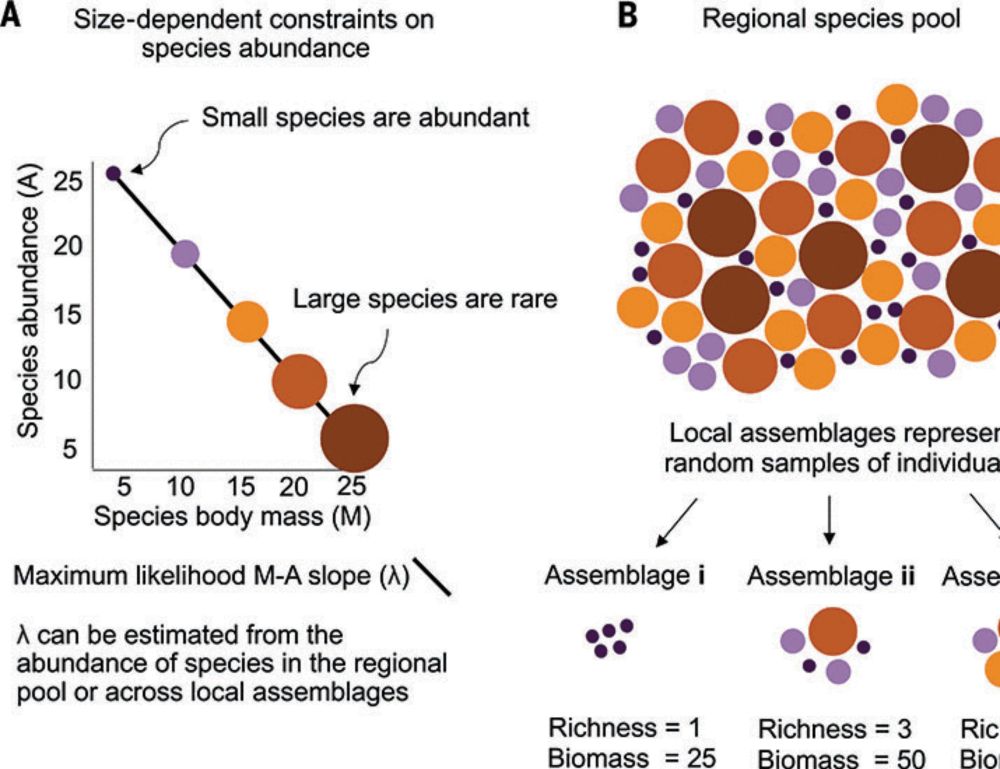Jon Bridle
@jonbridle.bsky.social
Professor of Evolutionary Biology at UCL
Director of CBER @uclcber.bsky.social
Interested in biodiversity, population genetics, genomics, and why species have narrow niches.
Director of CBER @uclcber.bsky.social
Interested in biodiversity, population genetics, genomics, and why species have narrow niches.
Reposted by Jon Bridle
In 2020, O Gaggiotti, J Goudet and I showed that Qst-Fst comparison was uncalibrated with high population structure.
During her PhD with us, Isa do O developed LogAV: a method that accounts for any population structure while testing for local adaptation :
journals.plos.org/plosgenetics...
During her PhD with us, Isa do O developed LogAV: a method that accounts for any population structure while testing for local adaptation :
journals.plos.org/plosgenetics...

A method for identifying local adaptation in structured populations
Species occupy diverse, heterogeneous environments, which expose populations to spatially varied selective pressures. Populations in different environments can diverge due to local adaptation. However...
journals.plos.org
September 24, 2025 at 7:23 AM
In 2020, O Gaggiotti, J Goudet and I showed that Qst-Fst comparison was uncalibrated with high population structure.
During her PhD with us, Isa do O developed LogAV: a method that accounts for any population structure while testing for local adaptation :
journals.plos.org/plosgenetics...
During her PhD with us, Isa do O developed LogAV: a method that accounts for any population structure while testing for local adaptation :
journals.plos.org/plosgenetics...
Reposted by Jon Bridle
Happy to also receive questions about life in Finland - Helsinki is a beautiful place to live and lab members will receive a list of the best bakeries and saunas in town
September 24, 2025 at 8:53 AM
Happy to also receive questions about life in Finland - Helsinki is a beautiful place to live and lab members will receive a list of the best bakeries and saunas in town
Reposted by Jon Bridle
📢 Post doc! Want to join our team?
We are looking for 3 post docs in biodiversity science, genetic indicator assessment, and ecological statistics for a fixed term of 2 years!
Come unravel the drivers and consequences of global change on biodiversity with us!
DL 24.9.
#universityofhelsinki
We are looking for 3 post docs in biodiversity science, genetic indicator assessment, and ecological statistics for a fixed term of 2 years!
Come unravel the drivers and consequences of global change on biodiversity with us!
DL 24.9.
#universityofhelsinki

3 Post doc positions in biodiversity science, genetic indicator assessment and ecological statistics
3 Post doc positions in biodiversity science, genetic indicator assessment and ecological statistics
jobs.helsinki.fi
September 3, 2025 at 12:00 PM
📢 Post doc! Want to join our team?
We are looking for 3 post docs in biodiversity science, genetic indicator assessment, and ecological statistics for a fixed term of 2 years!
Come unravel the drivers and consequences of global change on biodiversity with us!
DL 24.9.
#universityofhelsinki
We are looking for 3 post docs in biodiversity science, genetic indicator assessment, and ecological statistics for a fixed term of 2 years!
Come unravel the drivers and consequences of global change on biodiversity with us!
DL 24.9.
#universityofhelsinki
Reposted by Jon Bridle
How many chromosomes can an animal have?
In our paper out now in @currentbiology.bsky.social we show that the Atlas blue butterfly has 229 chromosome pairs- the highest in diploid Metazoa! These arose by rapid autosome fragmentation while sex chromosomes stayed intact.
www.cell.com/current-biol...
In our paper out now in @currentbiology.bsky.social we show that the Atlas blue butterfly has 229 chromosome pairs- the highest in diploid Metazoa! These arose by rapid autosome fragmentation while sex chromosomes stayed intact.
www.cell.com/current-biol...

Constraints on chromosome evolution revealed by the 229 chromosome pairs of the Atlas blue butterfly
The genome of the Atlas blue butterfly contains ten times more chromosomes than most
butterflies, and more than any other known diploid animal. Wright et al. show that
this extraordinary karyotype is ...
tinyurl.com
September 11, 2025 at 3:22 PM
How many chromosomes can an animal have?
In our paper out now in @currentbiology.bsky.social we show that the Atlas blue butterfly has 229 chromosome pairs- the highest in diploid Metazoa! These arose by rapid autosome fragmentation while sex chromosomes stayed intact.
www.cell.com/current-biol...
In our paper out now in @currentbiology.bsky.social we show that the Atlas blue butterfly has 229 chromosome pairs- the highest in diploid Metazoa! These arose by rapid autosome fragmentation while sex chromosomes stayed intact.
www.cell.com/current-biol...
Reposted by Jon Bridle
Paper artist Peter Ayres created the most beautiful wasp nest sculptures for the new #WorldOfWasps exhibition @uclgrantmuseum.bsky.social
FREE! www.ucl.ac.uk/museums-coll...
His journey:
www.peterayres.com/wasps?mc_cid...
with @tannisdavidson.bsky.social @uclnews.bsky.social
FREE! www.ucl.ac.uk/museums-coll...
His journey:
www.peterayres.com/wasps?mc_cid...
with @tannisdavidson.bsky.social @uclnews.bsky.social



June 25, 2025 at 3:16 PM
Paper artist Peter Ayres created the most beautiful wasp nest sculptures for the new #WorldOfWasps exhibition @uclgrantmuseum.bsky.social
FREE! www.ucl.ac.uk/museums-coll...
His journey:
www.peterayres.com/wasps?mc_cid...
with @tannisdavidson.bsky.social @uclnews.bsky.social
FREE! www.ucl.ac.uk/museums-coll...
His journey:
www.peterayres.com/wasps?mc_cid...
with @tannisdavidson.bsky.social @uclnews.bsky.social
Reposted by Jon Bridle
Huge thanks to @tannisdavidson.bsky.social and team for making the impossible dream come true:
THE WORLD'S FIRST ART-SCIENCE WASP EXHIBITION!
www.ucl.ac.uk/museums-coll...
...from wasp researchers behind #WorldOfWasps @uclgrantmuseum.bsky.social...
@cintiaoi.bsky.social @idrisadams.bsky.social
THE WORLD'S FIRST ART-SCIENCE WASP EXHIBITION!
www.ucl.ac.uk/museums-coll...
...from wasp researchers behind #WorldOfWasps @uclgrantmuseum.bsky.social...
@cintiaoi.bsky.social @idrisadams.bsky.social




June 25, 2025 at 4:17 PM
Huge thanks to @tannisdavidson.bsky.social and team for making the impossible dream come true:
THE WORLD'S FIRST ART-SCIENCE WASP EXHIBITION!
www.ucl.ac.uk/museums-coll...
...from wasp researchers behind #WorldOfWasps @uclgrantmuseum.bsky.social...
@cintiaoi.bsky.social @idrisadams.bsky.social
THE WORLD'S FIRST ART-SCIENCE WASP EXHIBITION!
www.ucl.ac.uk/museums-coll...
...from wasp researchers behind #WorldOfWasps @uclgrantmuseum.bsky.social...
@cintiaoi.bsky.social @idrisadams.bsky.social
Reposted by Jon Bridle
🌍 Just launched: 2025 Sustainable Development Report
A decade into the SDGs, the UK stays committed-but global progress is too slow.
💬 "The SDGs are not just targets0-they are a lifeline for people and for the planet.”
-Prof Gail Taylor, UK Chair, UN SDSN
🔗 Read more: www.ucl.ac.uk/lifesciences...
A decade into the SDGs, the UK stays committed-but global progress is too slow.
💬 "The SDGs are not just targets0-they are a lifeline for people and for the planet.”
-Prof Gail Taylor, UK Chair, UN SDSN
🔗 Read more: www.ucl.ac.uk/lifesciences...

June 24, 2025 at 3:50 PM
🌍 Just launched: 2025 Sustainable Development Report
A decade into the SDGs, the UK stays committed-but global progress is too slow.
💬 "The SDGs are not just targets0-they are a lifeline for people and for the planet.”
-Prof Gail Taylor, UK Chair, UN SDSN
🔗 Read more: www.ucl.ac.uk/lifesciences...
A decade into the SDGs, the UK stays committed-but global progress is too slow.
💬 "The SDGs are not just targets0-they are a lifeline for people and for the planet.”
-Prof Gail Taylor, UK Chair, UN SDSN
🔗 Read more: www.ucl.ac.uk/lifesciences...
Reposted by Jon Bridle
75% drop in child deaths as well as loads of other benefits. Those campaigning against it should be asked why they want more deaths

20mph limits in London linked to sharp fall in road injuries and deaths, new report finds
A new study published by Transport for London (TfL) has shown that the introduction of 20mph speed limits and zones on local authority-managed roads in London between 1989 and 2013 led to significant…
etsc.eu
June 8, 2025 at 6:31 PM
75% drop in child deaths as well as loads of other benefits. Those campaigning against it should be asked why they want more deaths
Reposted by Jon Bridle
How do we increase nature literacy among society? Some thoughts from @waspwoman.bsky.social
theconversation.com/heres-how-to...
theconversation.com/heres-how-to...

Here’s how to create a more nature-literate society
Nature literacy has inspired creativity and innovation for thousands of years.
theconversation.com
April 5, 2025 at 10:41 AM
How do we increase nature literacy among society? Some thoughts from @waspwoman.bsky.social
theconversation.com/heres-how-to...
theconversation.com/heres-how-to...
Reposted by Jon Bridle
New 🗒️led by Alex Pigot - Macroecological rules predict how biomass scales with species richness in nature -Standing biomass increases with richness when large-bodied spp are numerically rare but independent when spp size & abundance are uncoupled. @ucl.ac.uk - Science www.science.org/doi/10.1126/...

Macroecological rules predict how biomass scales with species richness in nature
Despite advances in theory and experiments, how biodiversity influences the structure and functioning of natural ecosystems remains debated. By applying new theory to data on 84,695 plant, animal, and...
www.science.org
March 21, 2025 at 9:26 AM
New 🗒️led by Alex Pigot - Macroecological rules predict how biomass scales with species richness in nature -Standing biomass increases with richness when large-bodied spp are numerically rare but independent when spp size & abundance are uncoupled. @ucl.ac.uk - Science www.science.org/doi/10.1126/...
Reposted by Jon Bridle
Discover how our researchers are creating real-world impact, developing innovative solutions to tackle humanity's most pressing challenges.
Watch the full video here: shorturl.at/mYLQV
Watch the full video here: shorturl.at/mYLQV
March 4, 2025 at 1:47 PM
Discover how our researchers are creating real-world impact, developing innovative solutions to tackle humanity's most pressing challenges.
Watch the full video here: shorturl.at/mYLQV
Watch the full video here: shorturl.at/mYLQV
Reposted by Jon Bridle
🚨New paper 🚨We argue that abrupt biodiversity losses can be driven by populations sharing similar tolerances to warming 🦋🌎🥵. Out now in @royalsocietypublishing.org. Summary thread below 🧵
royalsocietypublishing.org/doi/epdf/10....
royalsocietypublishing.org/doi/epdf/10....

January 9, 2025 at 12:53 PM
🚨New paper 🚨We argue that abrupt biodiversity losses can be driven by populations sharing similar tolerances to warming 🦋🌎🥵. Out now in @royalsocietypublishing.org. Summary thread below 🧵
royalsocietypublishing.org/doi/epdf/10....
royalsocietypublishing.org/doi/epdf/10....
Reposted by Jon Bridle
Shared heat tolerance leaves ecosystems at risk of sudden climate-driven collapse – new research
theconversation.com/shared-heat-...
theconversation.com/shared-heat-...

Shared heat tolerance leaves ecosystems at risk of sudden climate-driven collapse – new research
Different species often malfunction at the same temperature limit.
theconversation.com
January 9, 2025 at 3:47 PM
Shared heat tolerance leaves ecosystems at risk of sudden climate-driven collapse – new research
theconversation.com/shared-heat-...
theconversation.com/shared-heat-...
Reposted by Jon Bridle
‘Bending the curve towards nature recovery: building on Georgina Mace's legacy for a biodiverse future’ - a special issue of Phil Trans R Soc B in honour of a very special biodiversity scientist - is published today by @royalsociety.org. royalsocietypublishing.org/toc/rstb/202...

Philosophical Transactions of the Royal Society B: Biological Sciences: Vol 380, No 1917
royalsocietypublishing.org
January 9, 2025 at 9:31 AM
‘Bending the curve towards nature recovery: building on Georgina Mace's legacy for a biodiverse future’ - a special issue of Phil Trans R Soc B in honour of a very special biodiversity scientist - is published today by @royalsociety.org. royalsocietypublishing.org/toc/rstb/202...
Reposted by Jon Bridle
Honoured to have contributed to this new special issue on Georgina Mace's crucial legacy for people and biodiversity, alongside lots of great other contributions, curated by colleagues at @uclcber.bsky.social, @zslscience.bsky.social and more.
royalsocietypublishing.org/toc/rstb/202...
royalsocietypublishing.org/toc/rstb/202...

Philosophical Transactions of the Royal Society B: Biological Sciences: Vol 380, No 1917
royalsocietypublishing.org
January 9, 2025 at 10:33 AM
Honoured to have contributed to this new special issue on Georgina Mace's crucial legacy for people and biodiversity, alongside lots of great other contributions, curated by colleagues at @uclcber.bsky.social, @zslscience.bsky.social and more.
royalsocietypublishing.org/toc/rstb/202...
royalsocietypublishing.org/toc/rstb/202...
Reposted by Jon Bridle
Today sees the publication of a special edition of Phil Trans Roy Soc B ‘Bending the curve towards nature recovery: building on Georgina Mace's legacy for a biodiverse future’ dedicated to the life’s work of Prof Dame Georgina Mace:
@rspb.bsky.social
royalsocietypublishing.org/toc/rstb/202...
@rspb.bsky.social
royalsocietypublishing.org/toc/rstb/202...

Philosophical Transactions of the Royal Society B: Biological Sciences: Vol 380, No 1917
Can't sign in? Forgot your password?
royalsocietypublishing.org
January 9, 2025 at 10:22 AM
Today sees the publication of a special edition of Phil Trans Roy Soc B ‘Bending the curve towards nature recovery: building on Georgina Mace's legacy for a biodiverse future’ dedicated to the life’s work of Prof Dame Georgina Mace:
@rspb.bsky.social
royalsocietypublishing.org/toc/rstb/202...
@rspb.bsky.social
royalsocietypublishing.org/toc/rstb/202...
Reposted by Jon Bridle
Here's the introduction to the 16 papers, each owing an intellectual debt to Georgina. We outline how they all move us closer to answering the central question: How should we bend the curve of biodiversity loss to build a just and sustainable future?https://doi.org/10.1098/rstb.2023.0205
January 9, 2025 at 9:57 AM
Here's the introduction to the 16 papers, each owing an intellectual debt to Georgina. We outline how they all move us closer to answering the central question: How should we bend the curve of biodiversity loss to build a just and sustainable future?https://doi.org/10.1098/rstb.2023.0205
Reposted by Jon Bridle
Co-occurring species have similar tolerances to rising temperatures, suggesting communities will decline abruptly due to climate change. I wrote about our latest paper for The Conversation - check it out! 🧪🌏🥵 theconversation.com/shared-heat-...

Shared heat tolerance leaves ecosystems at risk of sudden climate-driven collapse – new research
Different species often malfunction at the same temperature limit.
theconversation.com
January 9, 2025 at 3:33 PM
Co-occurring species have similar tolerances to rising temperatures, suggesting communities will decline abruptly due to climate change. I wrote about our latest paper for The Conversation - check it out! 🧪🌏🥵 theconversation.com/shared-heat-...
Reposted by Jon Bridle
Just out! Jon Bridle and I have reviewed theoretical arguments and empirical evidence on how adaptation limits influence the fate of populations and communities in changing environments.
royalsocietypublishing.org/doi/10.1098/...
royalsocietypublishing.org/doi/10.1098/...

Impacts of limits to adaptation on population and community persistence in a changing environment | Philosophical Transactions of the Royal Society B: Biological Sciences
A key issue in predicting how ecosystems will respond to environmental change is understanding
why populations and communities are able to live and reproduce in some parts of ecological
and geographic...
royalsocietypublishing.org
January 9, 2025 at 9:53 AM
Just out! Jon Bridle and I have reviewed theoretical arguments and empirical evidence on how adaptation limits influence the fate of populations and communities in changing environments.
royalsocietypublishing.org/doi/10.1098/...
royalsocietypublishing.org/doi/10.1098/...

